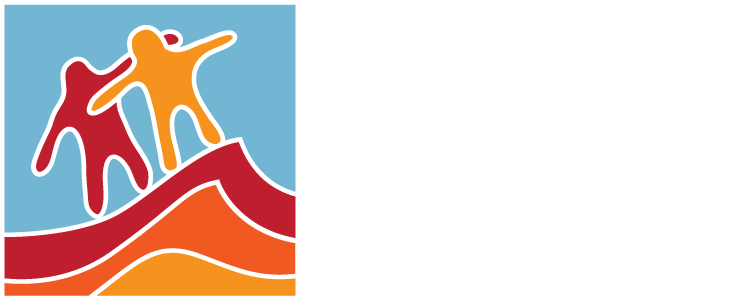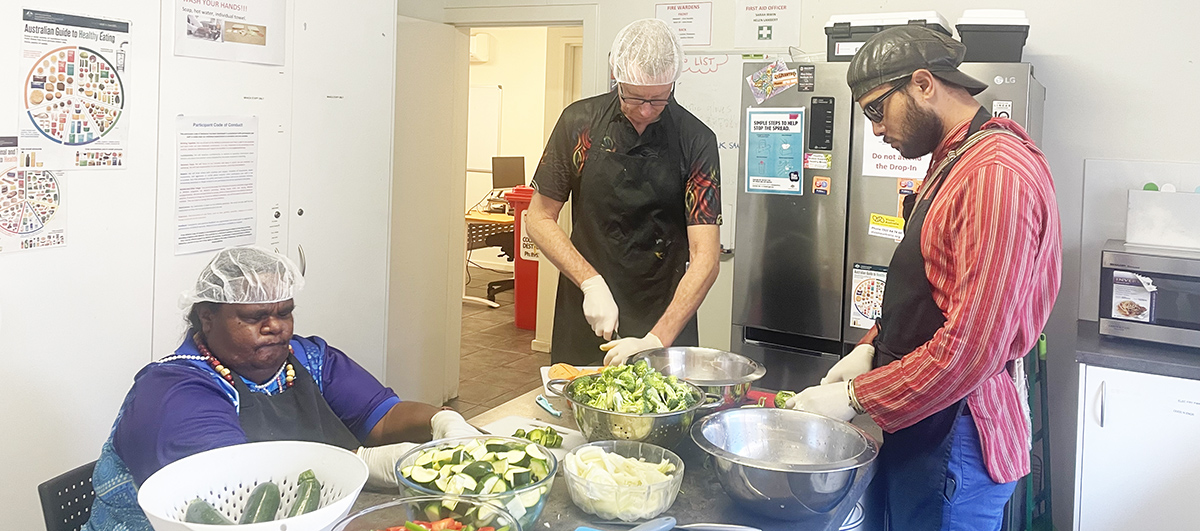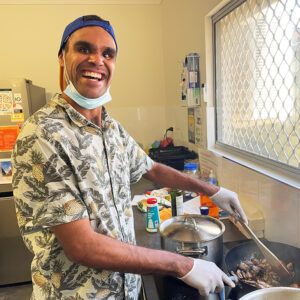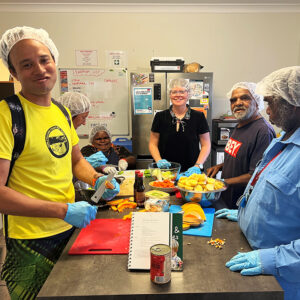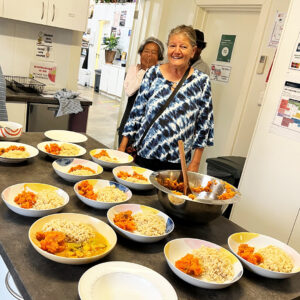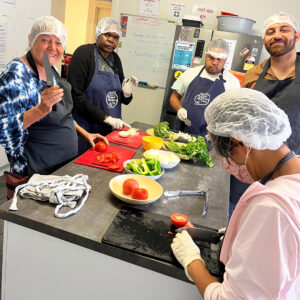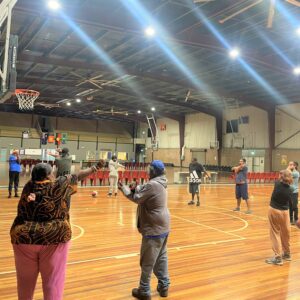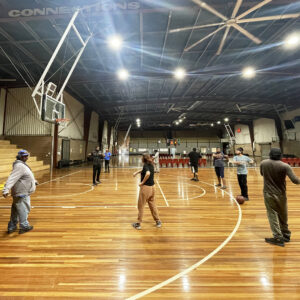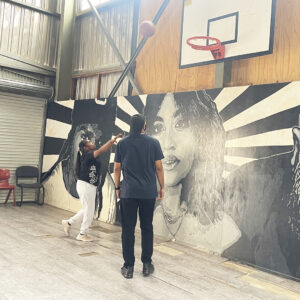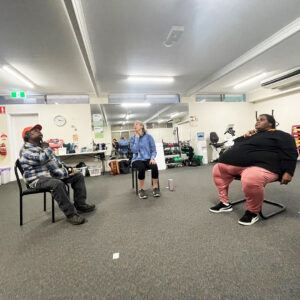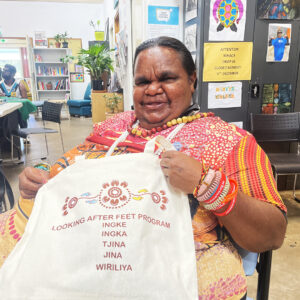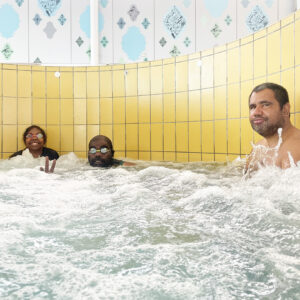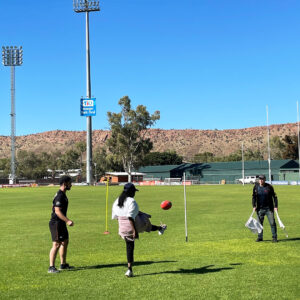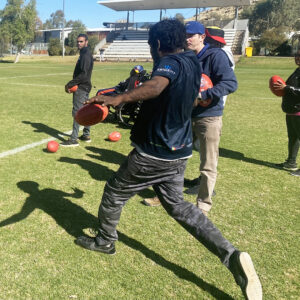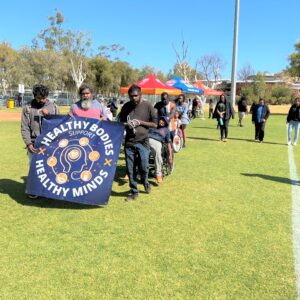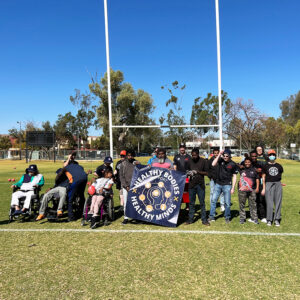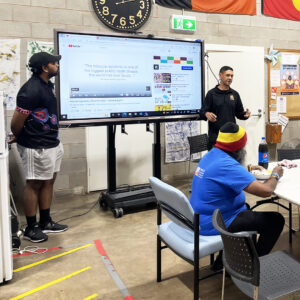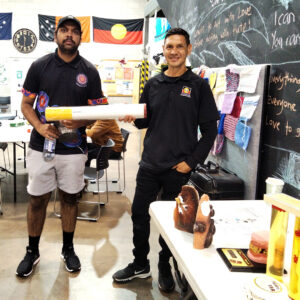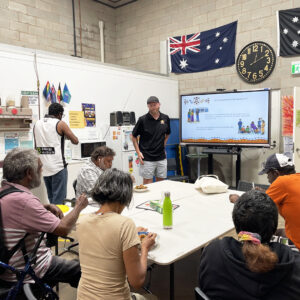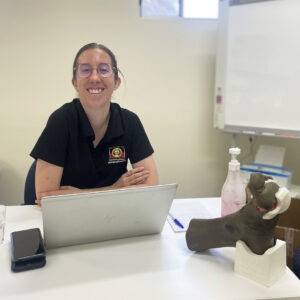MHACA is a signatory to the Equally Well Consensus Statement, a national initiative to improve the physical wellbeing of people living with mental illness. MHACA developed a Healthy Bodies Support Healthy Minds Strategy to provide a focus on improving the physical wellbeing of our participants and received a Healthy Lifestyles Grant from the Northern Territory Government to implement a program of activities over the course of a year.
Beginning in 2022 and continuing in 2023, MHACA delivered the Healthy Bodies Support Healthy Minds Project with our participants in partnership with community agencies.
It provided weekly activities with a focus on exercise and nutrition activities, including education on sugary drinks and increasing water consumption. The project included a weekly healthy cooking activity for participants followed by a shared lunch, and an all-abilities community walk.
The Healthy Bodies Support Healthy Minds Program had specific participant-focused objectives including:
- Increase MHACA participant engagement in regular exercise.
- Increase MHACA participant engagement in the cooking and eating of healthy meals utilising the Australian Dietary Guidelines.
- Decrease the consumption of sugary drinks by MHACA participants and increase water consumption.
The Program also had the specific objective of engaging local community service stakeholders in the delivery of program activities and building stronger community awareness of the importance of the physical health of people living with mental health conditions.
Cooking activity
MHACA delivered a healthy cooking activity for participants every Monday for 40 weeks. The meal that was cooked during the session was then shared for lunch with all participants at the Drop-in Centre. Each week 2-5 participants engaged in shopping, meal preparation, cooking and serving and up to 20 participants each week enjoyed a healthy meal.
Exercise
MHACA delivered 40 physical activity sessions throughout the year which rotated between:
- Low-intensity gym workouts in partnership with the Alice Springs Town Council Healthy Communities Program at the Alice Springs Aquatic and Leisure Centre.
- Gentle exercise in the pool at the Alice Springs Aquatic and Leisure Centre.
- Basketball (including low-intensity stretching and drills) at the Alice Springs Basketball Association courts.
- Footy 4 Life low-intensity exercise in partnership with AFL NT and No More Campaign – Catholic Care at ANZAC Oval.
Up to 10 participants participated in the weekly sessions. In particular, participants enjoyed basketball, Footy 4 Life and swimming – these activities will continue on in MHACA’s monthly group activities calendar.
A new water filter
A water bubbler was installed in MHACA’s Drop-in Centre to encourage increasing water consumption and reducing sugary drinks. This is to complement educational signage in the Drop-in Centre demonstrating how much sugar are in juices and soft drinks.
Community Walk
An all-abilities community walk was held at Anzac Oval in partnership with AFL NT and the Catholic Care No More Program, which included participation from clients of Central Australia Supported Accommodation and Life Without Barriers. 40 participants and their support workers enjoyed and a football session and then joined in the walk around the oval. This included an obstacle course, and then people joined together to share a healthy meal.
Health promotion educational sessions
MHACA also facilitated health promotion educational sessions for our participants as part of the project. These included:
- Central Australia Aboriginal Congress (CAAC) – Podiatrist Team (Looking After Your Feet program)
- CAAC Tackling Indigenous Tobacco Team
- Vision Australia – Eye health education
